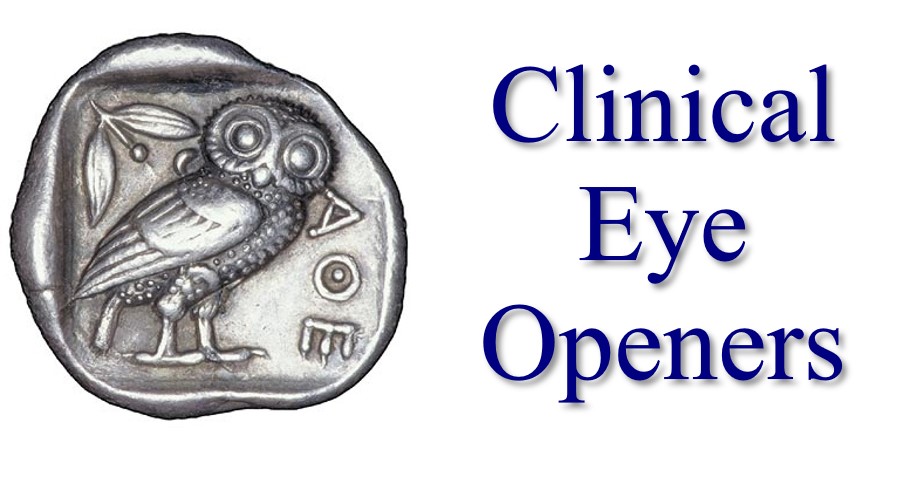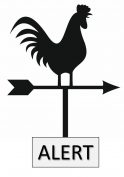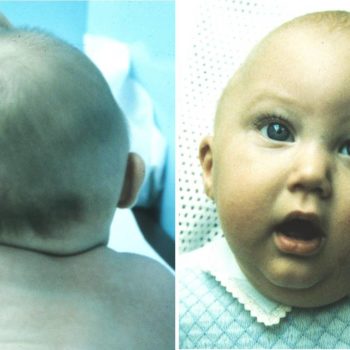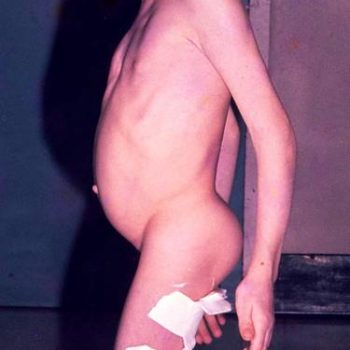Down Syndrome Plus
Please click to enlarge.
Note what signs you see.
I (W. Wertelecki, M.D.) see an obvious instance of Down syndrome (DS). I hope you have noticed that the fingers are relatively short in proportion to the palm (brachydactyly). Other signs are upward slant of the palpebral fissures, a short nose, a sparsity of scalp hair reflected as a receding forehead hairline, and a small round ear – all signs nor specific but frequent in DS. You also must have noticed the asymmetry of the oral opening (if persistent it could be a sign of facial palsy). These signs are NOT the point for this presentation. The point is to underscore that infants with DS are not immune from complications nor from other concurrent disorders.
PLEASE NOTE that “carvings” on volar (ridged and hairless) skin (of palms and soles as well as tails of other primates) represent unique patterns of each individual that are immutable since early embryogenesis (immune to environmental impacts except those between conception and approximately 12 weeks of gestation). The science of Dermatoglyphics represents methods and data useful to assess identity (forensic and police applications); population characteristics; early teratogenic impacts; etc. Please seek more information from scientific medical literature.






